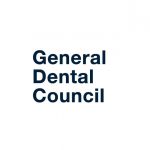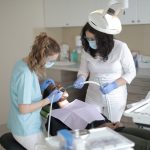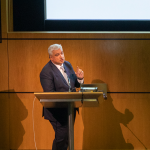Figures released by the General Dental Council (GDC) in response to a Freedom of Information (FOI) request show that 72% of Dental Care Professionals (DCPs) did not have legal representation when facing a GDC Fitness to Practise hearing[1].
The figures also show that 77% of DCPs without legal representation were suspended or erased from the Register and only 10% were concluded with no adverse findings. However, only 32% of those with legal representation were suspended or erased and 39% were concluded with no adverse findings.
In response to a query on this subject by Dental Review (www.dentalreview.news), a spokesperson for the GDC said “While the vast majority of dental professionals will never be involved in a fitness to practise investigation we have spoken before about the importance of engaging in the process for those who have had a concern raised about them. The findings of our research on The concept of Seriousness in fitness to practise, published earlier this year, highlighted the potential for more adverse outcomes in cases where professionals either do not engage or where they represent themselves. It also found that dentists were reported as having higher levels of representation when compared to dental care professionals. The requirements for healthcare professionals’ indemnity are set by Government and we will provide support as needed for any work on this issue.”
The UK’s professional association for dental nurses, the British Association of Dental Nurses (BADN) is therefore urging all dental nurses to obtain indemnity cover which includes legal fees for GDC investigations. Current BADN members can obtain indemnity cover at reduced cost via a special members’ link when they join or renew their BADN membership.
“The BADN indemnity scheme, underwritten by CFC Ltd, is dental nurse specific” said Siobhan O’Callaghan, Chief Operating Officer of Trafalgar Risk Management (TRM) who provide the BADN scheme. “It was designed with dental nurses in mind – not as an add-on to a dentist’s cover; is individual, so goes with the dental nurse if she changes jobs; and includes legal fees for GDC investigations. It is also an insurance scheme, rather than a mutual, so BADN members can be confident that they are suitably covered for their dental nursing activities under the GDC Scope of Practice.”
Membership of BADN is currently £35pa for Registered Dental Nurses, with special rates for part time workers and those on maternity leave. Other benefits of BADN membership, in addition to the purchase of indemnity cover at special member rates, include a Legal Helpline, Health & Wellness Hub including a support/counselling Helpline, the digital quarterly “British Dental Nurses’ Journal” with verifiable CPD, and BADN Rewards – a wide range of special offers and discounts on travel/home/car/life insurance, travel, high street shopping, Apple products, motoring and much more!
Dental nurses can join their professional association at www.badn.org.uk/join
[1] Medical Protection Press Release, 23 August 2022













